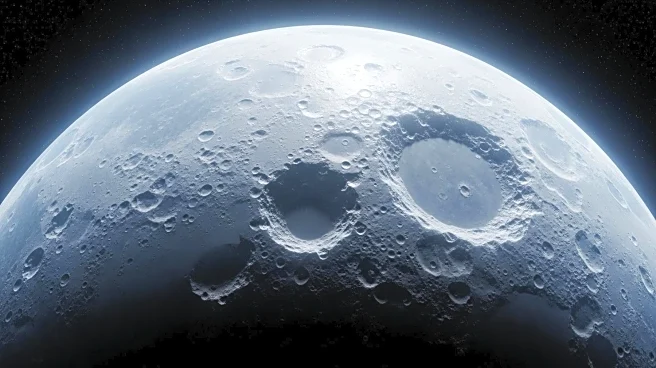What is the story about?
What's Happening?
Scientists have found compelling evidence that Saturn's moon Enceladus may be habitable. Data from NASA's Cassini spacecraft, which flew through geysers of ice grains ejected from Enceladus, revealed the presence of organic molecules. These molecules, which include potential nitrogen and oxygen compounds, are essential for life. The findings suggest that Enceladus's subsurface ocean contains the building blocks necessary for life, making it a candidate for hosting extraterrestrial organisms.
Why It's Important?
The discovery of organic molecules on Enceladus is a breakthrough in astrobiology, as it suggests that life could exist beyond Earth. This finding expands the scope of the search for life in the solar system, highlighting the potential of icy moons as habitats. The presence of these molecules in fresh ice grains confirms that they originate from Enceladus's ocean, rather than being altered by space weathering. This enhances the moon's status as a target for future exploration missions.
What's Next?
The scientific community is likely to advocate for missions to Enceladus to further investigate its potential for life. Such missions could involve landing on the moon to collect samples directly from its surface. Meanwhile, NASA's Europa Clipper mission, set to explore Jupiter's moon Europa, may provide additional insights into the habitability of icy moons. These efforts will contribute to a broader understanding of where life might exist in the solar system.
Beyond the Headlines
The potential habitability of Enceladus raises philosophical and ethical questions about humanity's place in the universe. Discovering life on another world would have profound implications for science, religion, and society. It would challenge existing theories about the uniqueness of life on Earth and could influence future space exploration policies. The findings also emphasize the importance of international cooperation in space research to address these complex issues.
















